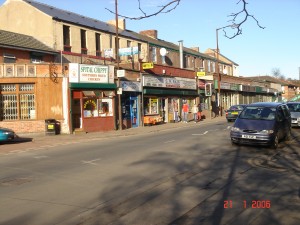How Do Localised Economies Work?
It’s almost impossible to answer the question: how do localised economies work? Real-life businesses trading, prove what works. We discover what works by doing it and what works in one place may fail in another.
However it is worth making a few observations.
Three Dimensions
Localised economies operate in three dimensions: grassroots, online and politically through regulation.
Grassroots
The act of trading has always been a grassroots activity. You make yourself known to your market and provide goods and services to that market. The big advantage of local trading is that it is easier to build trust. However, not all businesses can survive solely by trading locally.
Many small businesses provide specialist products and services to larger businesses and in this sense the economy is one system. There is always both a localised economy and a larger globalised economy. The problem is where the power lies. Clearly the big companies are going to dominate financial arrangements with smaller businesses.
Regulation
The traditional approach is through regulation. Everyone complains about regulation and most political parties are sceptical about it. I think we need to appreciate what regulation does for the economy. Here are two advantages to regulation:
- Regulation protects the consumer. The retail co-operative movement started partly in response to food adulteration. Food needs to be properly labelled and contain what it claims to contain. Big companies fight to stop regulation that would oblige them to place health warnings on packaging for example. Restrictions on the retail of tobacco and alcohol are other examples. And how else are countries going to cut their carbon footprint?
- Regulation protects small businesses from exploitation by big businesses. I suppose this is the concept of the level playing field. Legislation protects a small business entering into a contractual arrangement with a powerful business. This applies to consumers as much as it applies to business arrangements. Also businesses can voluntarily enter into arrangements regulated through legislation. Co-operatives protect their assets when they are regulated through legislation. The demutualisation of building societies during the 1980s demonstrates the inadequacies of the current regulations. The marketplace has its share of sharks and small businesses and consumers need protection.
Collaboration Online
The other way local economies mitigate the aggressive behaviour of large businesses is through collaboration online. Mostly businesses go online to extend their market. This might be by local publicity, so encouraging more people to visit their shop. But it can be by selling online, whether it is products or services. Opening up to a national or global market might help some small businesses finance their local operations. But even where they don’t aim to trade locally, the finance they earn can be spent locally.
There are other ways local businesses can collaborate online:
- Local businesses build partnerships online, perhaps marketing a shopping destination and not each shop.
- Businesses in similar markets or providing similar products or services can network to share ideas or maybe jointly market some products or services.
- Small businesses can find out about models of partnership and collaboration. How do businesses work together? Contractual arrangements where one business provides products or services to another, are one example. Collaboration might be to develop a new product or service that can be marketed locally in several localities. It might be in sharing ideas or developing new ones, eg how to market a shared business type.
- Also, localities can network and learn from one another. If a local centre is particularly effective at helping businesses collaborate, there may be lessons for other areas. Knowing what is possible and how to organise new developments together can be empowering.
The retail co-ops were successful because they targeted the disadvantaged new working classes. They were a highly effective self-help and inspired many experiments carried out by those who had little to lose. Ideas were it seems, communicated from place to place with little mediation.
A Role for Community Development?
The problem for many small businesses is time. They need to devote their working hours to their business and collaboration becomes a luxury they can’t afford unless there are clear financial benefits. An alternative would be for some sort of mediation, that helps businesses to build their local economy. Perhaps this is a role for community development workers, although traditionally few have taken on this challenge. I suppose this is working with the wealthy whilst community development tends to be targeted at disadvantaged communities. But how effective has this traditional approach been?
Now that the days of large-scale grants are behind us, how can we look again at what local economies can offer?

